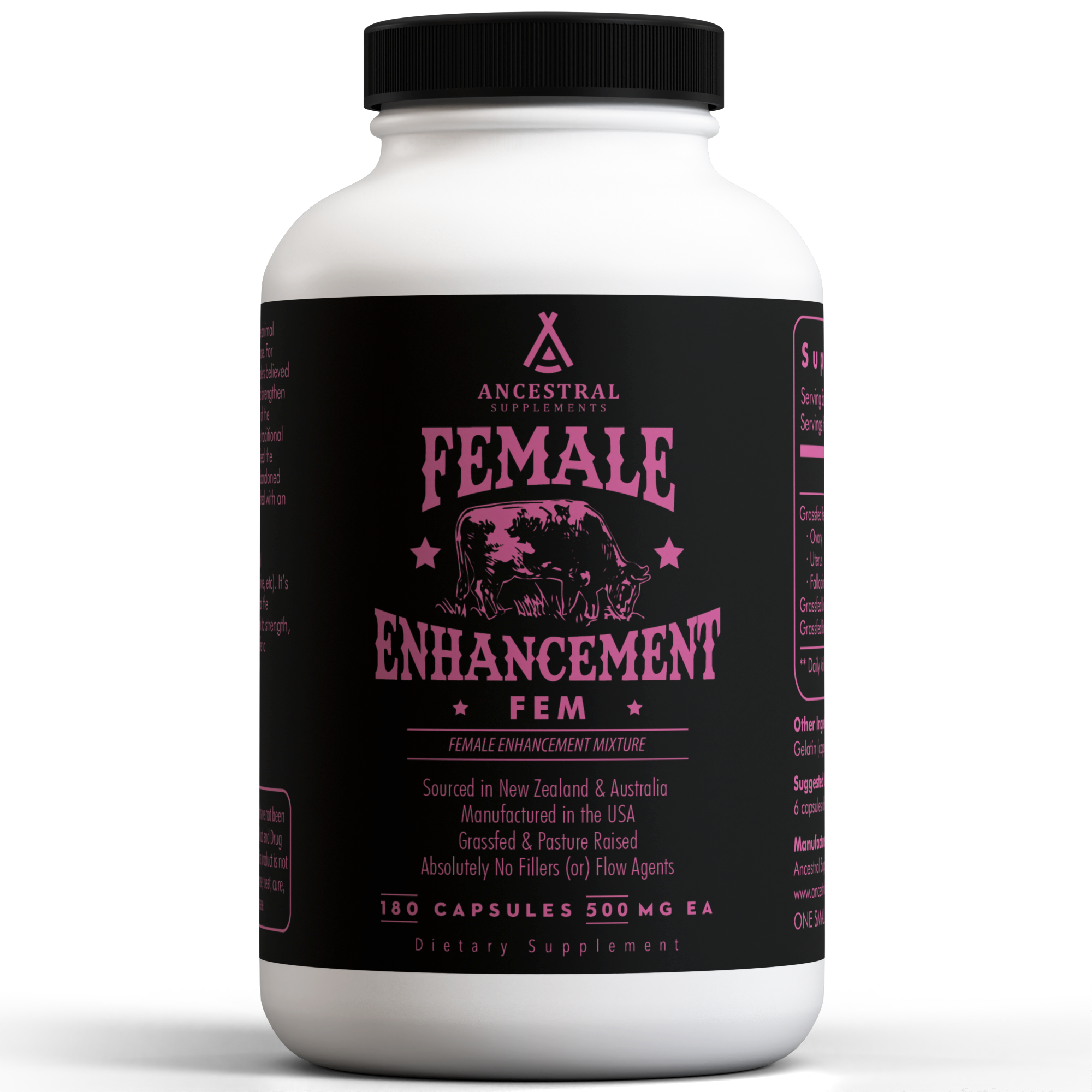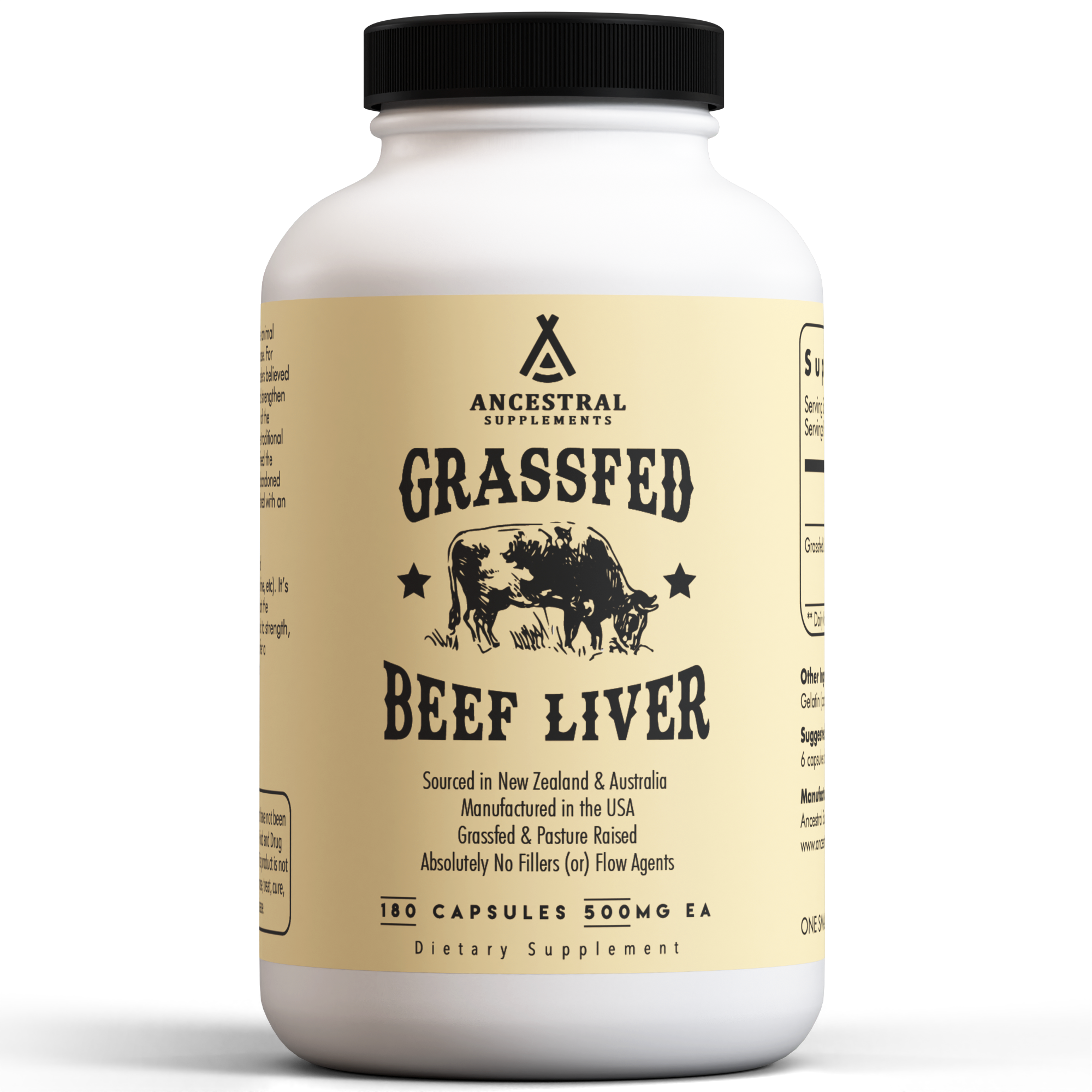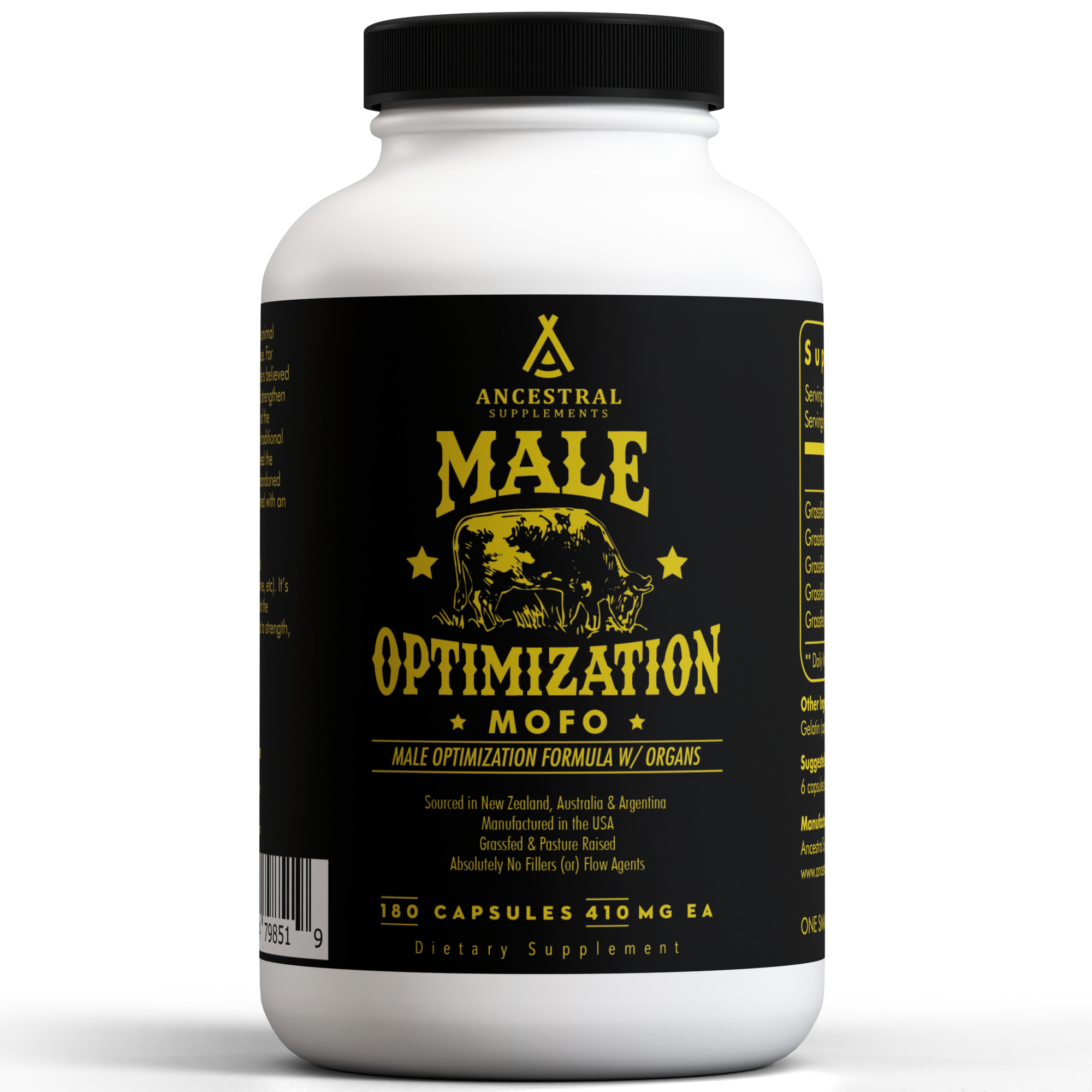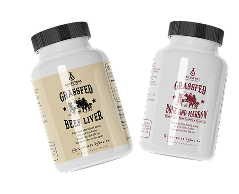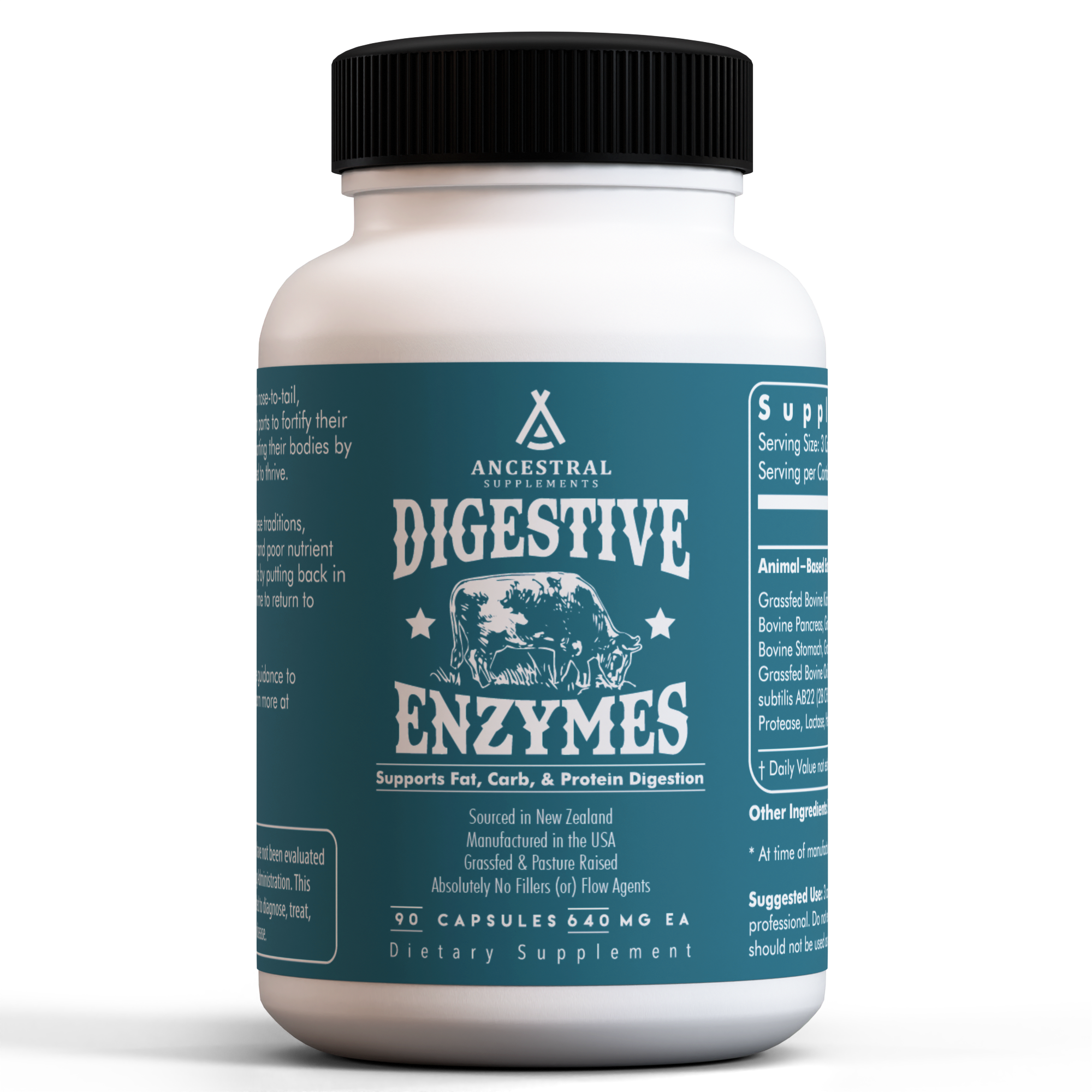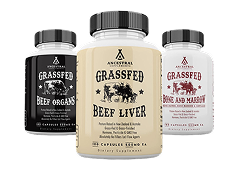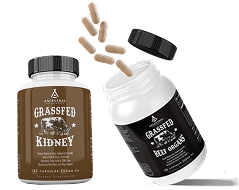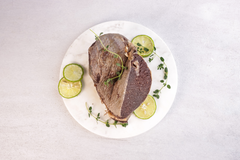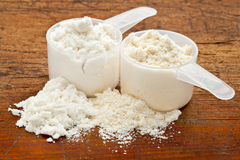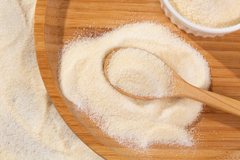Unlocking the Benefits of Probiotics
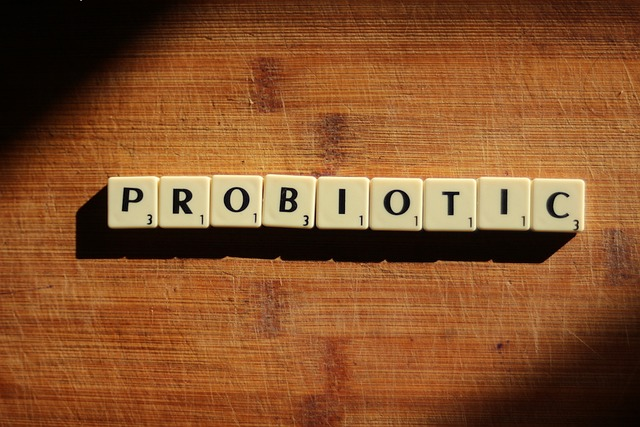
By far the most fascinating subject of health... Teeming with life, energy and diversity richer than our rainforests. If you haven’t already heard, probiotics are THE talk of the town in the world of health and wellness, and for good reason! These tiny, yet powerful microorganisms have been helping humans maintain a healthy gut for centuries... And modern research is just beginning to unveil their full potential! In this comprehensive guide, we're going to take you through the fascinating world of probiotics; from their ancient origins to the cutting-edge research that’s shaping their future. It's a living subject that's nearly timeless!
Let's Give a Short Summary
-
Reveal the amazing health benefits of probiotics, from gut health to weight management, mental health and more!
-
Explore prebiotics & synbiotics for improved gut health and overall wellbeing.
-
Exciting future research shows potential for personalized probiotic therapies tailored to individual needs!
But How Old Are Probiotics, Really?

Probiotics have been around for ages, quite literally! As a matter of fact, it's honestly hard to pin down a specific time frame, as bacteria and living microorganisms have been around since time immemorial. Some researchers and archaeologists are proclaiming that bacteria have been around since the birth of our planet! (Now isn't that something to think about?)
And while our ancestors didn't exactly have access to fancy probiotic supplements, they unknowingly consumed these beneficial bacteria by just picking fresh fruit and veggies from the earth. Are you familiar with the white film that covers grapes and apples in the wild? Yep! Those are probiotics! (Fun fact: IF organic, it might even give you a second thought before brushing that healthy layer of yeast off, before sinking your teeth right on in...)
Additionally, with the discovery of Fermented Foods, our Ancestors (Little did they know) were consuming tiny, powerhouses of living energy! The Lactobacillus and Bifidobacterium species, as well as yeast-based probiotics, offered a plethora of health benefits which would've included enhanced gut health, weight management, and mental health.
Lucky for us, and with the advent of modern science, researchers have delved deeper into understanding the human microbiome, which consists of trillions of microorganisms, including even more beneficial bacteria. This thriving ecosystem within our gut holds the key to a myriad of so many health benefits. I'm sure we're all familiar with Hippocrates' saying, "All health begins in the gut". Perhaps and unknowingly, he was giving credit to the living world inside all of us!
Let's Talk About the Human Microbiome!
The human microbiome refers to the incredibly diverse collection of microorganisms that reside within and on our bodies. This complex ecosystem, primarily found in the gut, plays a crucial role in various aspects of our health... Including digestion, immunity, and mental well-being. Amongst the trillions of microorganisms in our microbiome, bacteria are the most abundant and diverse, with the gut microbiome being the most studied. (Fun fact: Did you know you have more microbes in your gut, than there are stars in the Milky Way?)
The benefits of a healthy microbiome extend far beyond digestion. Research has linked the human microbiome to an even further plethora of health benefits, such as aid with Diabetes, Mental Health, and even protection against urinary tract infections! And it doesn't end there... Having a strong and diverse microbiome is linked to having more beautiful skin, illustrious hair, and even improved Muscle Mass!
Understanding Probiotics: Types and Functions

As you embark on your journey into the world of probiotics, it’s essential to understand the different types of probiotics and their functions. Just as we touched on previously, with our ancestors, the most common types of bacteria found in probiotics are Lactobacillus and Bifidobacterium species. These bacteria have the amazing ability to produce something called short-chain fatty acids, which have serious potential Wellness Benefits, including improved gut health and support of the immune system.
Just as varied workouts affect different muscle groups, different types of probiotics may also have different effects on the body... So it’s crucial to choose a probiotic supplement (Or food!) with the appropriate strains for your specific needs. For instance, Lactobacillus acidophilus, a type of probiotic bacteria found in the human gut, mouth, and vagina, has been shown to be effective in treating diarrhea caused by antibiotics. (Pretty cool, right?! Take THAT, antibiotics!)
Okay... But Lacto-what?
Lactobacillus species are a group of beneficial bacteria commonly found in fermented foods and dietary supplements. Some well-known examples include Lactobacillus acidophilus and L. Rhamnosus. These probiotics offer various health benefits, such as supporting gut health, boosting the immune system, and even helping to fight off disease-causing bacteria. Basically, they're the warriors of our guts! Let's touch on some key bullet points on these bad boys.
-
Bolster the Immune System: Since the Lactobacillus species should make up such a large quantity/army within our guts, they may help to stimulate the production of immune and white blood cells which have the power to enhance our body's response to infections.
-
Digestive Disorders? No thank you: Lactobacillus probiotics are used, quite often, to alleviate many cases of various digestive disorders, such as (But not limited to!) irritable bowel syndrome (IBS), constipation, and diarrhea. They may even help to regulate bowel movements, thus helping to reduce discomfort which are often associated with these conditions.
-
For Women & Vaginal Health: Did you know that certain Lactobacillus strains are predominant in the vaginal microbiota? It's true! They help to keep a slightly acidic environment. It's quite possible, when used as probiotics, that Lactobacillus may support vaginal health by preventing the overgrowth of other bad bacteria and yeasts.
-
Mental Juices Activate: There's certainly a connection between our gut health and mental health. If we can give our guts a chance, with empowering strains like Lactobacillus, we may indeed have lower risks for dementia, brain fog, and even Alzheimer's. Emerging research is consistently looking more deeply into this.
-
Allergies Begone: Although we need a bit more research, it's worth pointing out that there are studies which suggest early-life exposure to certain Lactobacillus strains may indeed play a role in reducing the risk of developing allergies!
Next Up, Bifidobacterium!
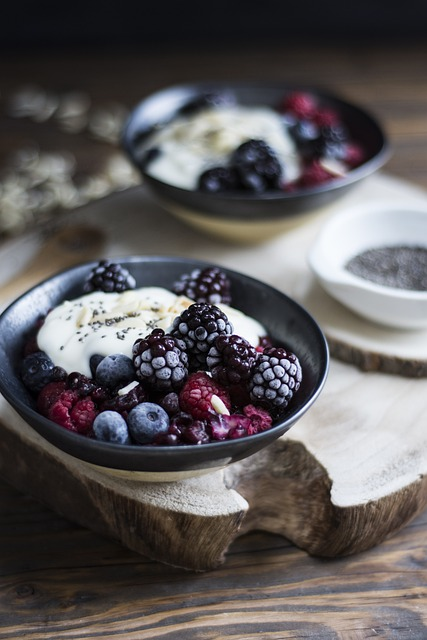
Bifidobacterium species are another group of beneficial bacteria that play a crucial role in gut health. Some common types include Bifidobacterium bifidum, Bifidobacterium longum, and Bifidobacterium Infantis. These probiotics have been found to help reduce inflammation, improve digestion, and support of the immune system.
You can find Bifidobacterium species in certain probiotic supplements as well as in some delicious, fermented foods, such as yogurt and Kefir. (Bifidobacterium looooves dairy!) Just like our pals, the Lactobacillus, let's touch on some benefits of Bifido...
-
Gut Health: Bifidobacterium strains dominantly live in the colon. Here, they help to break down their favorite food; complex carbohydrates! They also love to ferment fiber and produce those awesome short-chain fatty acids that we talked about before!
-
Lactose Away: This one should come as no surprise, as Bifido love to wolf down the milk sugar, lactose! It's also one of their favorite foods, which is another reason they're so predominant in fermented milks and yogurts.
-
Metabolic Enhancer: Another reason to love this incredibly important strain... Did you know that there is continuous research which speaks to the benefit of metabolic health, involving these good guys? It's true! Such potential impact includes weight management and metabolic disorders like diabetes.
Don't forget that Bifidobacterium love prebiotics (Which we'll get to soon!) and fibrous foods. Also worthy of noting, it's kind of unfortunate... Because Bifidobacterium seems to dwindle nowadays from overuse of antibiotics and junky, processed foods. It's important to keep this species alive, because it helps to feed the other probiotics in your gut, too!
The Role of Prebiotics and Synbiotics
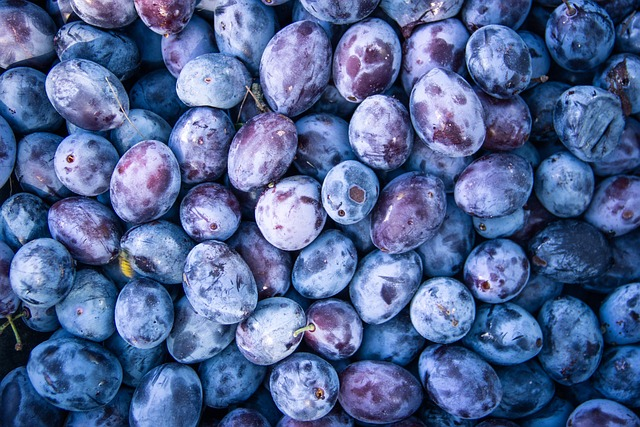
Prebiotics and synbiotics are often mentioned alongside probiotics, but what exactly are they, and how do they contribute to your gut health? Well... Prebiotics are the heroes for our probiotics! They're basically special plant fibers that act as food for the good bacteria in your gut, helping them grow and thrive. Essentially? They're gut fertilizer!
These prebiotics can be found in a variety of foods, including fruits, vegetables, (Properly prepared) nuts and seeds, and grains. By providing the necessary nutrients for probiotics to grow and thrive, prebiotics play a crucial role in maintaining a healthy and balanced gut microbiome.
Synbiotics, on the other hand, are formulas that contain both probiotics and prebiotics, designed to enhance the overall effectiveness of probiotics in your body. Both prebiotics and synbiotics play a critical role in supporting the growth and function of probiotics, ensuring that your gut remains a healthy and balanced environment for these beneficial bacteria to flourish. As a matter of fact, any time you take a bite of kimchi or sauerkraut, you're literally consuming nature's synbiotics!
Please keep in mind that by providing the necessary nutrients and conditions for the probiotics in our guts to thrive, we continue to help maintain optimal gut health and overall well-being. Let's keep the good guys alive, so that we may continue to thrive!
Probiotic Foods and Their Roles

In addition to supplements, probiotic foods offer a delicious and natural way to introduce beneficial bacteria into your body. These powerhouse foods, which include yogurt, kefir, kombucha, kimchi, and other fermented vegetables, are packed with live microorganisms that can provide even more advantageous benefits to your wellbeing! Curious as to what they have to offer? Let's dive right in...
-
Kimchi: A traditional Korean dish, involving fermentation and steeped in tradition... It is commonly made with napa cabbage, radishes, flavorful and various spices, as well as peppers and garlic. What's that special seasoning blend, you ask? Alright, I guess we can tell you... It consists of garlic, red pepper flakes, anchovy sauce, and ginger. Deliciously tart, spicy, tangy, and bursting with flavor!
-
Kefir: This is about as Ancestral as it gets... With history dating back to over 4,000 years ago, Kefir is also hailed to have come from the Caucasus Mountains, near Russia. Kefir is loaded with probiotic bacteria, good yeasts, and health benefits galore. Similar to our good friends; the Bifidobacterium family, the multitude family of bacteria, yeasts and fungi within kefir wolf down the sugars and proteins, turning milk into a slightly less thick consistency than our pal, yogurt. Slightly effervescent, gorgeous in smoothies, or consumed with a drizzle of honey, fresh berries and just a dash of cinnamon... Trust us when we say this; you're going to want kefir in your diet. (For both taste, and benefits!)
-
Kombucha: Literally brought to life from its mother SCOBY (Or: Symbiotic colony of bacteria and yeast), kombucha is also an effervescent drink... Made by fermenting sweet tea, via sugar and a mixture of green and black teas. The two benefits we want to really touch on here involve Saccharomyces Boulardii, and the glucosamines that may have the power to help with joint health! What makes S. Boulardii so special? Well, we think it's worth mentioning that it may have the power to help with Candida, as well as H. Pylori!
*Quick reminder: Yes... We adore kombucha, but highly suggest making it from home. For one, the probiotic benefits you receive may be through the roof AND it ensures you're able to control the sugar content within. Store-bought kombucha is almost always packed with unnecessary added sugars, oddball ingredients, and sometimes the probiotics aren't even alive, as they've been killed through pasteurization!
As a quick reminder... Probiotic foods not only taste great, but they also provide a host of health benefits for those who consume them regularly. Keep in mind that some strains in probiotic foods, such as those from the Lactobacillus family, are transient (Meaning they don't stay long in our guts) while others, such as Bifidobacterium species and probiotic yeasts in kefir, make permanent refuge and sanctuary within our intestines. Again... Some of these benefits include improved digestion, a boosted immune system, reduced inflammation, and even potential support for weight management.
Don't forget that this is an incredibly small list. The probiotic world of foods is positively enormous. Make sure to look into natto, raw cheeses, kvass, salami, sumbala... The list literally just goes on and on. This is exciting, because it means even more diverse strains of probiotics!
The unique and individual strains found within each of these special, living foods, may offer unique health effects... So, it’s important to consume a variety of probiotic foods to ensure you’re reaping the full range of benefits. By providing a steady supply of beneficial bacteria to your gut, probiotic foods support healthy digestion, immunity, better sleep, and even greater concentration, with strengthened mental health.
Cool! But What About Probiotic Supplements?
Naturally, we're going to encourage you to go as Ancestral as possible, so of course we'd prefer to see you get your probiotic sources from food sources... Again, such as kimchi, kombucha, kefir and etc... But we understand there are conveniences, which are sometimes necessary, too. So, let's touch on this a bit!
And truth be told, if you're just starting out, then probiotic supplements are a convenient and effective way to introduce beneficial bacteria into your body! However, it’s essential to understand how these supplements are regulated and classified to ensure you’re choosing a safe and effective product.
When it comes to dietary supplement regulations, the FDA requires that these products include a Supplement Facts label with nutrition information. In this case, this is actually wonderfully useful, since you get to find out the CFU (Colony Forming Unit/Strength ~ More on this in a moment...) of the probiotic that you're taking, in supplemental form. Furthermore, this label allows consumers to understand the ingredients and composition of the supplement and make informed decisions about their health. Why is this important? Because some of us want to improve digestion, while others may be wanting to overcome a UTI... Remember: Different probiotics do different things in the body!
More on CFU Count and Strain Variety
When selecting a probiotic supplement, it’s really important to pay attention to the CFU (Again: colony forming units) count and strain variety. As a general rule of thumb, higher CFU count typically indicates a more potent supplement... With a good range for adults being between 25 to 50 billion CFUs per serving.
As we just briefly touched on, strain variety really is crucial, as different strains of probiotics can have different effects on the body. Look for a supplement that contains multiple strains, or specific strains tailored to your particular health needs. There's nothing wrong with consulting your healthcare practitioner or professional(s) for personalized guidance on the appropriate CFU count and strain variety for your individual needs. After all, we're all beautifully different and wonderfully unique! What may help one, may not necessarily help the other...
Struggling With Gut health and IBS?
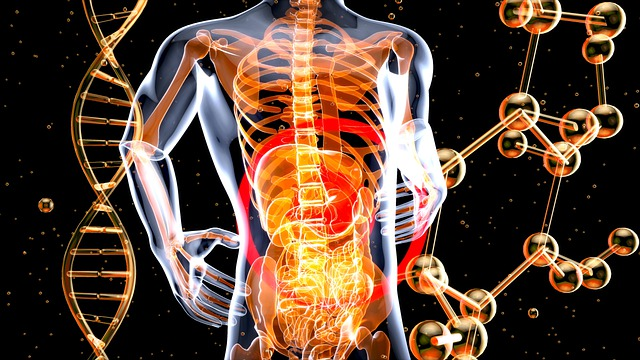
For those suffering from irritable bowel syndrome (IBS), probiotics can be a game-changer. By introducing beneficial bacteria into the gut, probiotics can help alleviate IBS symptoms and improve overall gut health.
In fact, some probiotic strains, such as Lactobacillus acidophilus, have been shown to be effective in treating diarrhea caused by antibiotics. This makes probiotics an invaluable tool for those looking to maintain a healthy digestive system and improve their overall well-being.
Weight Management
While more research is needed to fully understand the role of probiotics in weight management, preliminary studies have shown promising results. Some probiotics may aid in weight management by altering gut bacteria, leading to improved metabolic function and possibly even weight loss.
Additional research has pointed to the benefit of some strains, aiding with appetite regulation, as well as store housing for fat. Incredibly enough, studies have even pointed to either the blaming or hailing of bacteria as being slimming or stimulating of obesity! (Yes, these little guys really are that powerful).
It’s important to note that further research is necessary needed to determine the specific strains, duration of treatment, and appropriate dosages for weight management. In the meantime, it can't hurt any of us to enjoy some kefir, kombucha, or sauerkraut!
Mental Health and the Gut-Brain Axis

The connection between probiotics and mental health is a fascinating and rapidly growing area of research. Early studies suggest a link between gut microbiota and the central nervous system, commonly referred to as the gut-brain axis.
But How? These powerful little microbes have been reported to literally create serotonin with our guts, as well as aid with the production of oxytocin and other chemicals, such as dopamine, to help improve our mood and cognitive function.
Undoubtedly, more information will come to light as we seek to fully understand the potential benefits of probiotics for mental health. Thankfully, even our earliest findings show promise for conditions such as depression, anxiety and even more debilitating conditions such as schizophrenia. As our understanding of the gut-brain axis continues to grow, the potential for probiotics to improve mental health becomes an increasingly exciting prospect.
For the Ladies
Urinary tract infections (UTIs) can be a painful and persistent problem for many people. Fortunately, probiotics may offer some relief. Research has shown that certain probiotic strains, such as Lactobacillus Rhamnosus GR-1 and Lactobacillus Reuteri, can help restore the urogenital flora and prevent a urinary tract infection.
While results are promising, it’s important to remember that not all probiotics are created equal, and different strains may offer varying degrees of protection against UTIs. Nevertheless, we consider it imperative to share this important information with you!
Potential Side Effects and Precautions
It's only natural that we want to sit here and sing song of probiotics, and while everything we've shared is true and accurate, we also find it important to be aware of potential side effects and precautions when taking these supplements or consuming these foods. If you're not used to them, starting common side effects can temporarily include gas, bloating, and diarrhea. Although the majority of people tolerate probiotics incredibly well.
Immunocompromised individuals should exercise caution when taking probiotics, as they may be more susceptible to infection and experience more intense side effects. As always, consult your functional practitioner or professional before taking any new supplement, especially if you have specific health concerns or a weakened immune system. Your health and priority are always number one!
Special Considerations For Immunocompromised Individuals
For immunocompromised individuals, taking probiotics can pose additional risks. These individuals may be more vulnerable to the effects of probiotics and could experience more intense side effects. In these cases, it’s crucial to consult a healthcare professional before taking probiotics to ensure that they are safe and appropriate for your unique health needs.
By being aware of potential side effects and precautions, you can make an informed decision about whether probiotics are the right choice for you, and take steps to ensure that you’re using them safely and effectively.
If there's even a mild thought of concern or discomfort, please keep in mind that (Politely, whether you like it or not) your gut is indeed teeming with these good & bad guys... They serve a tremendous purpose, and we should only ever continuously search to provide improvement for them, which then in turn provides betterment for us.
What's Current?
Current research really does support the use of probiotics for a variety of health conditions, including Crohn’s disease, ulcerative colitis, IBS, allergies & eczema, as well as acute infectious gastroenteritis. However, more studies are needed to fully understand the potential benefits and mechanisms of probiotics.
While the current state of probiotic research is promising, there is still much to learn about the complex interactions between probiotics and the human body. As our understanding of these interactions grows, so too does the potential for probiotics to improve overall health and well-being.
Beautiful! But What Does the Future Hold?
It's always worthwhile to look to the future. Afterall, don't we want to consistently improve? Well, of course! As researchers continue to explore the potential benefits of probiotics, future studies are looking to focus upon personalized therapy... Taking into account individual gut microbiomes and health needs. This approach could lead to more effective treatments for a wide range of health conditions, ultimately improving overall health and potentially helping to overcome lifelong, or debilitating conditions. Pretty exciting stuff, if you ask us!
While probiotic research holds greater promise for the future, and as our understanding of the gut microbiome continues to grow, so too does the potential for probiotics to revolutionize the way we approach health, vitality, longevity, capacity to thrive, and even beauty.
A Galaxy Within You

Our world never ceases to amaze and astonish us. While we continue to hustle and bustle about... Busy with our daily lives, hopefully we'll stop to take a minute and truly appreciate the trillions of creatures living inside us, working tirelessly to help us function on the miraculous levels in which we do. Our thoughts... Actions, talents, intelligences and everything that makes us, well, us! Deserves a greater aspect of respect and care. Hopefully this blog has inspired you to step up just a little bit more, to feed, nourish and enhance the miniature-sized galaxy within you. Trust us... As you take care of them, they WILL take care of you!
And of course, no one ever complained about having improved gut health, stronger concentration and focus... Less anxiety, more beautiful skin and complexion, along with more resilient hair. Not to mention a potential banishment in allergies!
Perhaps we should also stop for a second and think how gorgeously diverse our planet is. Think of the uncountable species and varieties of plants, flowers, grasses and tree's... The creatures of the land, and souls of the sea. And of course, even in our humanity, with the diversity of our majestic races! How can we possibly stand to ever judge differences, when our internal system literally thrives off of it?
Frequently Asked Questions
What are the signs you need probiotics?
If you’re experiencing digestive irregularities, cravings, slower metabolism, or skin issues, it’s likely a sign that your body needs probiotics.
Probiotics are friendly bacteria that can provide various health benefits, so make sure to get enough of them in your diet!
Is it OK to take a probiotic every day?
Yes, it’s safe and usually recommended to take probiotic supplements daily. Understand that they are natural supplements and not a medicine!
Nice. But do probiotics really help IBS?
It seems that probiotics can provide significant symptom relief for those suffering from IBS unless they are also diagnosed with SIBO. Studies have shown that Bacillus Coagulans strain LBSC can reduce symptoms such as bloating, abdominal pain, constipation, diarrhea, nausea, vomiting, and stomach rumbling.
Therefore, probiotics can be an effective treatment option for those with IBS.
What are the side effects of taking probiotics?
Probiotics might cause some mild stomach upset, diarrhea, bloating and flatulence, as well as the potential risk of allergic reactions.
Thus, as a gentle suggestion, please use caution when considering probiotic supplementation. Simply because it may take more effort and time to make sure you're choosing the right one for you, and you don't want digestive distress.
What does Lactobacillus do to your body?
Lactobacillus helps promote gut health by producing lactic acid to prevent harmful bacteria colonization, as well as aiding digestion, immunity, and helping to reduce the risk of diseases like type 2 diabetes and inflammatory bowel disease. It is an important member of our microbiome and can be found naturally in our bodies or added to food products.

